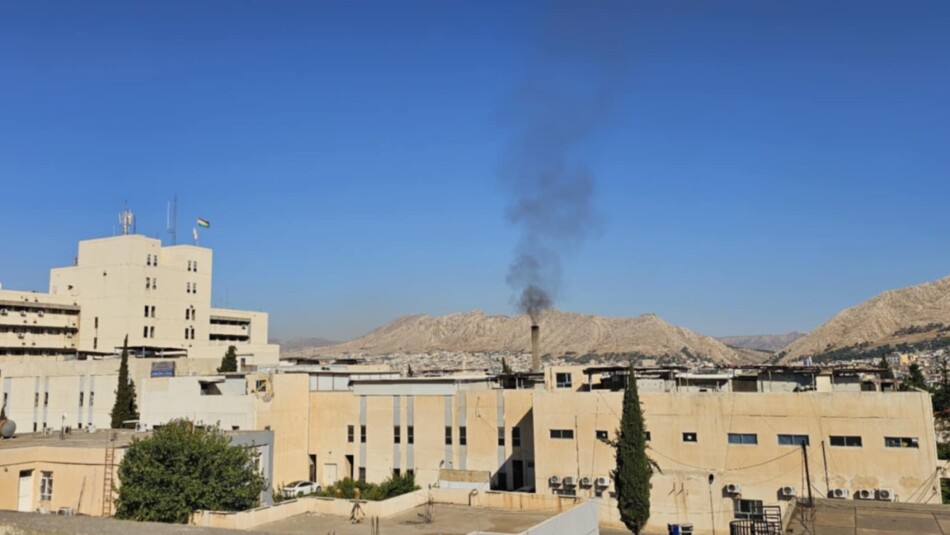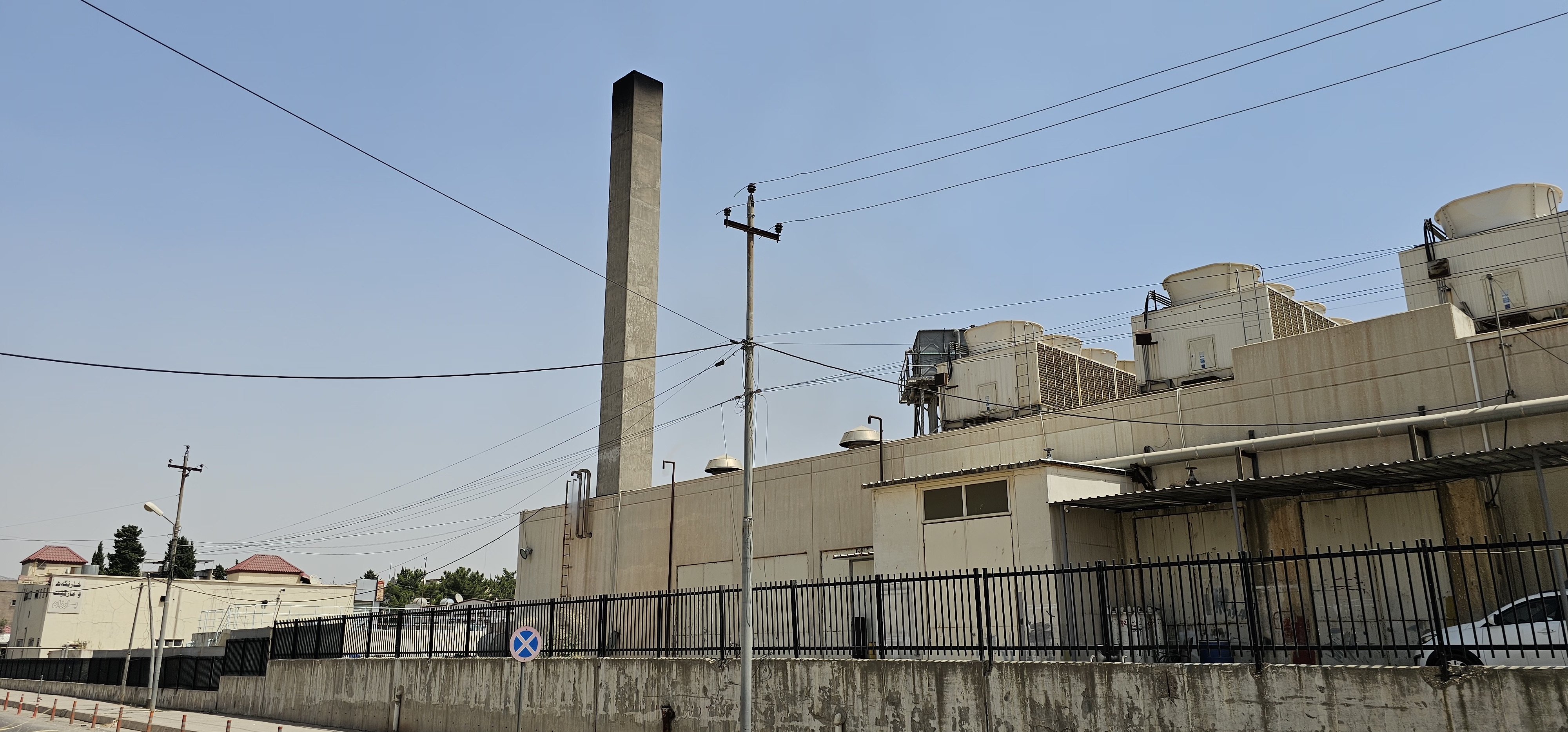
Physicians are warning about the health consequences of burning medical waste near residential areas in Duhok, especially for pregnant women and infants who may experience deaths.
There are two locations for burning medical waste in the center of Duhok Northern Province, at Azadi Hospital and the Burns and Plastic Surgery Hospital. The smoke from the burning medical waste is released into the sky, mixed with the air and surrounding environment.
Banaz Saleem, a pregnant employee at the Burns Hospital in Duhok, mentioned that they inhale the smoke from the burning waste, which spreads an unpleasant smell and has caused shortness of breath numerous times because the incinerator is still located inside the hospital where she works.
"I haven't checked yet to see how my baby is doing or how the smoke is affecting us, but I am concerned because of my direct exposure to it," said Banaz, who chose to remain anonymous to avoid consequences.
I am concerned because of my direct exposure to it
Most of the waste is burned during regular working hours, directly impacting the hospital staff. Banaz mentioned that they have requested multiple times for the waste to be burned in the evening or at night to minimize the impact on the staff, but their requests have been ignored.
Both public hospitals are situated in densely populated areas, causing concern not only for the staff but also for the residents in the surrounding areas.
Last month, the incinerator at the burn hospital malfunctioned for a week, leading to a buildup of blood and medical waste inside the hospital.
The Kurdistan Regional Government KRG’s Ministry of Health MoH says that environmental pollution is one of the causes of cancer, with 9,911 cancer cases recorded in 2023, and statistics indicate that lung cancer is the second most common case. Iraqi Ministry of Health has registered over 43,000 cancer cases in 2023.

Duhok, June 2025: Azadi General Hospital. Ammar Aziz
According to experts, when polluted air enters the lungs of a pregnant mother and affects her health, it directly impacts the health of her baby as well.
Dr. Jinan Nuri, an assistant professor of gynecology and obstetrics, explained that pregnant women are more likely to experience discomfort when inhaling smoke into their lungs.
"When a pregnant woman breathes in polluted air and smoke, as smoking people, the smoke is transferred to the baby through the bloodstream, affecting the baby's weight and growth, or potentially leading to death between one and three months," Nuri stated.
"This is a major contributor to infant mortality."
"Respiratory diseases or cancer may develop... These illnesses are more prevalent in individuals who grow up in areas with polluted air and high levels of smoke," she added.
The World Health Organization (WHO) cautions that indoor and outdoor air pollution poses a significant threat to life and the climate, resulting in the premature deaths of seven million people globally each year.
This is a major contributor to infant mortality
The incineration of medical waste in Duhok involves the use of diesel and kerosene, which, according to environmental experts, indicates that the process is not being carried out properly, emitting black smoke and contributing to carbon dioxide emissions.
In addition to causing damage to the respiratory system, including asthma, carbon dioxide also leads to blood clotting, especially in pregnant women.
"Smoke emissions of carbon dioxide have a direct impact on respiratory issues and asthma," stated Dr. Chakdar Ahmad, an oncologist in Duhok, in an interview with KirkukNow.
"If a woman suffers from severe asthma and is taking medication, coupled with inhaling polluted air and smoke, she may experience delays in becoming pregnant compared to other women... Women with asthma face the risk of fetal death with each pregnancy," Nuri explained.
Therefore, Chekdar Ahmad believes that medical waste should be incinerated rather than disposed of improperly, as burying it underground causes greater harm.
"The correct approach is to place incinerators outside of cities, away from hospitals and residential areas."
Iraq is the world's fifth most vulnerable country to climate change, facing various environmental challenges from oil and gas production to inadequate waste management, with 12 million tons of waste produced annually.
The transportation sector, particularly land transport, accounts for 15% of greenhouse gas emissions, making it the second-largest source of pollution after energy and industry.
According to the KRG Environment Board, there are approximately 2.4 million vehicles and 7,354 diesel, power generators in the region. These generators emit toxic smoke daily, posing a threat to human and animal health.
Afrasiab Musa, the director general of health in Duhok, mentioned that not all waste is burned; some is crushed, including glass, syringes, and other items.
However, he noted that the incinerator at Azadi Hospital is old and dates back to the 1980s.
"It requires repairs to operate more efficiently and prevent the emission of smoke," Afrasiab stated.
"The black smoke does not contain chemicals that harm the environment and people," he clarified. "It is not emitted daily, perhaps only once a month."
He mentioned that there are no current plans to relocate the incinerator.